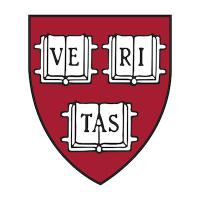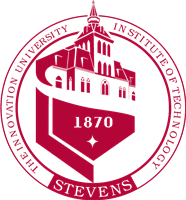What do they do?
Perform site-specific engineering analysis or evaluation of energy efficiency and solar projects involving residential, commercial, or industrial customers. Design solar domestic hot water and space heating systems for new and existing structures, applying knowledge of structural energy requirements, local climates, solar technology, and thermodynamics.
Also known as:
Consulting Engineer, Engineer, Photovoltaic System Designer (PV System Designer), Power Systems Engineer, Project Engineer, Research Engineer, Solar Design Engineer, Solar Designer, Solar Energy Engineer, Solar Engineer
-
2.3%
Change
Ranks #43 in job growth rate490Job Openings
Ranks #6 in net job growth
-
Dartmouth College
Hanover, NH
-
Harvard University
Cambridge, MA
-
University of Arkansas
Fayetteville, AR
-
Stevens Institute of Technology
Hoboken, NJ
-
Carnegie Mellon University
Pittsburgh, PA
Looking for colleges that offer a specific major? Use the College Match Tool to find your best-matched schools and discover your estimated Net Price!
- Doctorate or Professional Degree (8%)
- Master's degree (26%)
- Bachelor's degree (50%)
- Associate's degree (6%)
- Some college, no degree (7%)
- High school diploma equivalent (4%)
- Less than high school diploma (1%)
Most Popular Majors that prepare Solar Energy Systems Engineers
-
#1
-
Degrees Granted
504
-
Female Students
132
-
Male Students
372
-
Median Starting Salary
$64,763
-
-
#2
-
Degrees Granted
185
-
Female Students
51
-
Male Students
134
-
Median Starting Salary
$64,763
-
-
#3
-
Degrees Granted
152
-
Female Students
35
-
Male Students
117
-
Median Starting Salary
$64,763
-
-
#4
-
Degrees Granted
152
-
Female Students
21
-
Male Students
131
-
Median Starting Salary
$66,400
-
-
#5
-
Degrees Granted
99
-
Female Students
22
-
Male Students
77
-
Median Starting Salary
$64,763
-
People in this career often have these skills:
- Reading Comprehension - Understanding written sentences and paragraphs in work-related documents.
- Critical Thinking - Using logic and reasoning to identify the strengths and weaknesses of alternative solutions, conclusions, or approaches to problems.
- Writing - Communicating effectively in writing as appropriate for the needs of the audience.
- Speaking - Talking to others to convey information effectively.
- Complex Problem Solving - Identifying complex problems and reviewing related information to develop and evaluate options and implement solutions.
- Active Listening - Giving full attention to what other people are saying, taking time to understand the points being made, asking questions as appropriate, and not interrupting at inappropriate times.
- Mathematics - Using mathematics to solve problems.
- Judgment and Decision Making - Considering the relative costs and benefits of potential actions to choose the most appropriate one.
People in this career often know a lot about:
- Engineering and Technology - Knowledge of the practical application of engineering science and technology. This includes applying principles, techniques, procedures, and equipment to the design and production of various goods and services.
- Design - Knowledge of design techniques, tools, and principles involved in production of precision technical plans, blueprints, drawings, and models.
- Building and Construction - Knowledge of materials, methods, and the tools involved in the construction or repair of houses, buildings, or other structures such as highways and roads.
- Mathematics - Knowledge of arithmetic, algebra, geometry, calculus, statistics, and their applications.
- Mechanical - Knowledge of machines and tools, including their designs, uses, repair, and maintenance.
People in this career often have talent in:
- Written Comprehension - The ability to read and understand information and ideas presented in writing.
- Written Expression - The ability to communicate information and ideas in writing so others will understand.
- Problem Sensitivity - The ability to tell when something is wrong or is likely to go wrong. It does not involve solving the problem, only recognizing that there is a problem.
- Deductive Reasoning - The ability to apply general rules to specific problems to produce answers that make sense.
- Oral Expression - The ability to communicate information and ideas in speaking so others will understand.
- Fluency of Ideas - The ability to come up with a number of ideas about a topic (the number of ideas is important, not their quality, correctness, or creativity).
- Inductive Reasoning - The ability to combine pieces of information to form general rules or conclusions (includes finding a relationship among seemingly unrelated events).
- Oral Comprehension - The ability to listen to and understand information and ideas presented through spoken words and sentences.
- Information Ordering - The ability to arrange things or actions in a certain order or pattern according to a specific rule or set of rules (e.g., patterns of numbers, letters, words, pictures, mathematical operations).
- Mathematical Reasoning - The ability to choose the right mathematical methods or formulas to solve a problem.
- Originality - The ability to come up with unusual or clever ideas about a given topic or situation, or to develop creative ways to solve a problem.
- Category Flexibility - The ability to generate or use different sets of rules for combining or grouping things in different ways.
- Near Vision - The ability to see details at close range (within a few feet of the observer).
- Speech Recognition - The ability to identify and understand the speech of another person.
- Speech Clarity - The ability to speak clearly so others can understand you.
People in this career often do these activities:
- Collect data about project sites.
- Prepare detailed work plans.
- Design alternative energy systems.
- Provide technical guidance to other personnel.
- Create graphical representations of energy production systems.
- Create models of engineering designs or methods.
- Evaluate plans or specifications to determine technological or environmental implications.
- Recommend technical design or process changes to improve efficiency, quality, or performance.
- Determine design criteria or specifications.
- Determine operational methods.
- Inspect finished products to locate flaws.
- Analyze green technology design requirements.
- Analyze costs and benefits of proposed designs or projects.
- Test green technologies or processes.
This page includes data from:

 Occupation statistics: USDOL U.S. Bureau of Labor Statistics Occupational Employment Statistics
Occupation statistics: USDOL U.S. Bureau of Labor Statistics Occupational Employment Statistics









